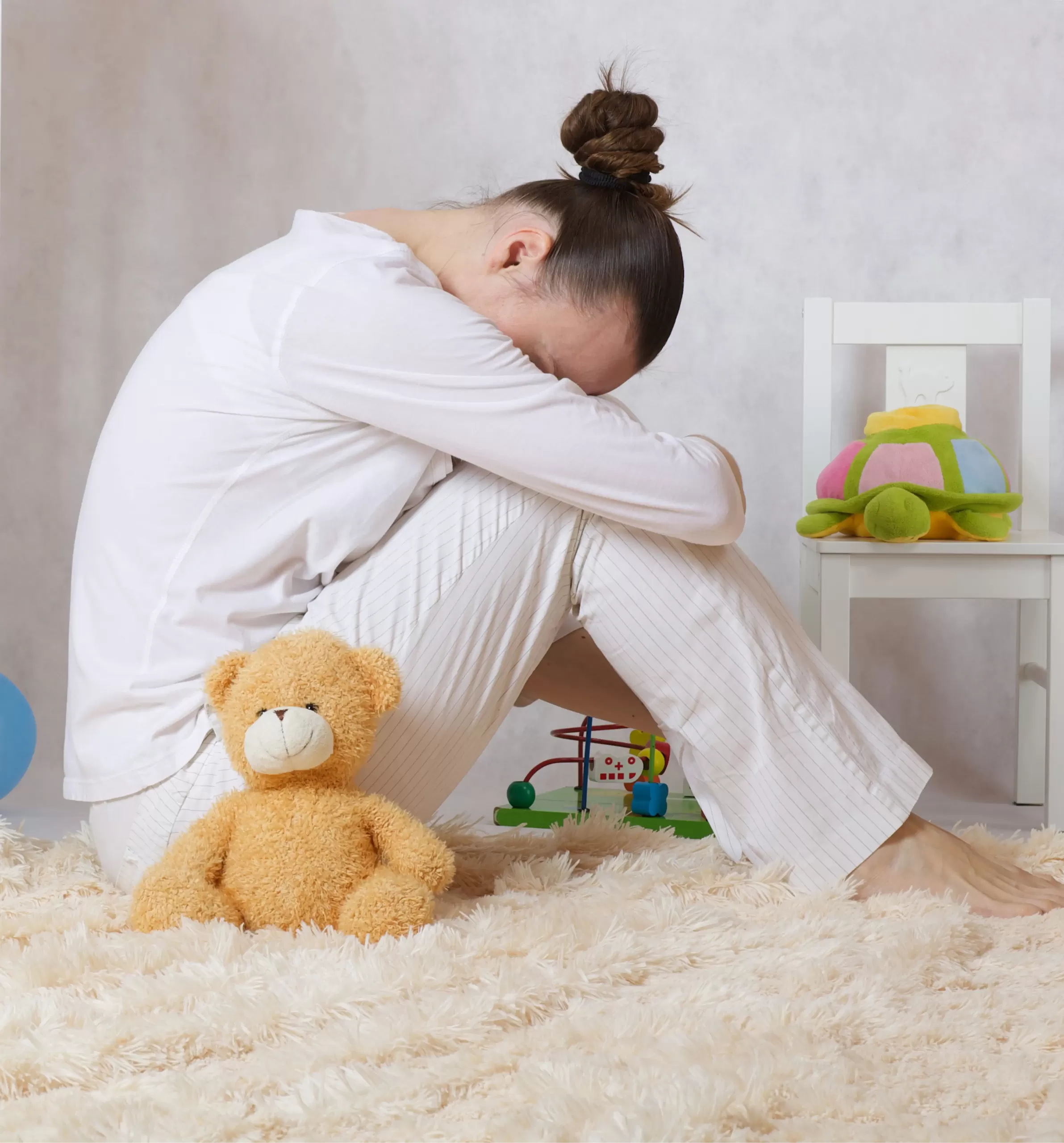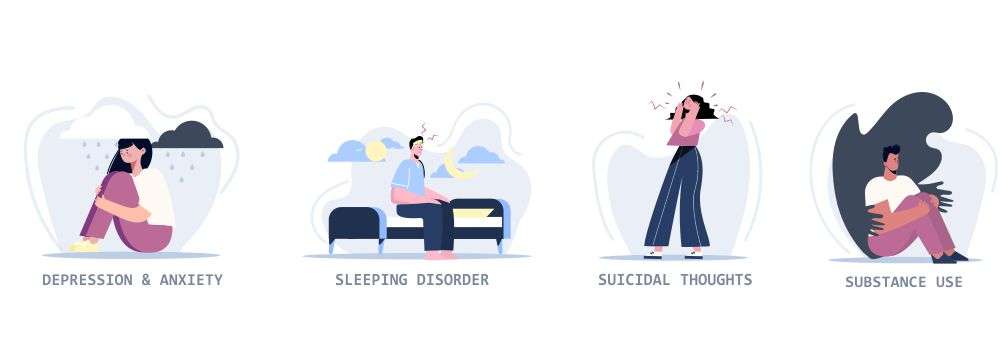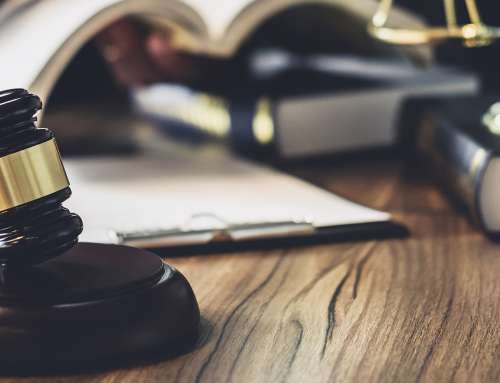One in 13 children and young people in the UK will have PTSD at some point, reports Lancet Psychiatry.
And that’s not all of it! Did you know that as many as 14.5% of children reported symptoms of post traumatic stress disorder after seeing 9/11 footage in a controlled group? Intrusive thoughts, fear for their safety, and a preoccupation with images were all present 3,500 miles away from the scene of the attack.
But hope’s not lost at all.
They say awareness is the first step towards betterment. So, let’s look at PTSD’s symptoms, causes, risks, and treatment. This blog will also briefly touch on Complex PTSD and its prevention.
So, without further ado, let’s dive right into it!
What Is PTSD?
Post-traumatic stress disorder (PTSD), a psychiatric illness, can arise in those who have actively or passively been a part of a traumatic event.
What is Trauma?
An extreme experience that pushes the boundaries of language and have the capacities to rupture the meaning altogether. Therefore, any incident will fall under the umbrella of trauma if it:
- Violates a person’s sense of security
- Endangers their safety,
- Puts them in a fight, flight or freeze mode
Trauma can be an attack, natural disaster, tragic accident, war, threat of death, losing a loved one, sexual assault, and similar incidents.

PTSD Symptoms
There are four primary categories of PTSD symptoms, yet everyone experiences them differently.
- Reliving or re-experiencing disturbing recollections in the form of flashbacks or nightmares
- Avoidance includes avoiding things that bring back memories of the trauma, losing interest in activities and life in general
- Hyperarousal, such as sleep issues, impatience, or violent outbursts, and aggressive, self-destructive, or risky behaviour
- Negative mental and emotional shifts include feeling alone and alienated, having trouble focusing or remembering and feeling depressed and gloomy. It also includes feeling betrayed and mistrusted and feeling guilty or ashamed.
PTSD Symptoms in Children
When it comes to children, particularly young children, PTSD Signs and Symptoms may differ from that of adults. They could include:
- The fear of being separated from their parents
- The loss of previously acquired skills (such as toilet training)
- Sleep issues and nightmares
- Compulsive, obnoxious play that focuses on themes or aspects of the trauma is re-enacted
- Fears and anxieties are new and appear unrelated to trauma (such as fears or phobias about monsters)
- Playing the trauma out through stories, play, or even drawings
- Pains and aches that do not indicate the root
- Aggression and irritability
Further reading: PTSD Signs and Symptoms in Adults and Children
PTSD Causes & Risk Factors
Feeling scared, unhappy, nervous, and alienated is common after a stressful event. But if the distress persists, you can have post-traumatic stress disorder. Contrary to the Combat Fatigue concept, any hopeless, and emotionally exhausted can create PTSD—especially if it seems unforeseen and uncontrollable.
Understanding that everyone responds differently to distressing events is utmost important!
And because of this, not everyone who experiences trauma will experience post traumatic stress disorder. Nevertheless, the degree of support and care a person receives from friends, family, and specialists in the aftermath of the trauma may affect how quickly they develop PTSD or how severe their symptoms are.
Furthermore, one’s risk of having post traumatic stress disorder multiplies if they have a history of other mental health issues or have blood relatives who have mental health issues. Similarly, if you account for alcohol or drug misuse, you may be more prone to experience PTSD following a traumatic event.
Further reading: Top 3 Causes of PTSD: Understanding PTSD a Little Better
PTSD Diagnosis
Each person has a different capacity for controlling anxiety, stress, and the threat posed by a traumatic incident or circumstance. That being said, you reach out to a doctor, your doctor will probably:
- Examine your health to look for any conditions that could be the source of your symptoms
- Perform a psychological assessment that discusses your symptoms and the incident that preceded them
- Provide medical assessment reports following the criteria found in the UK Council of Psychotherapy (UKCP) and the British Psychological Society (BPS)
Besides, exposure to an event that entailed the real or potential danger of death, violence, or significant harm is necessary to diagnose PTSD. One or more of the following scenarios could lead to your exposure:
- You were present when the terrible thing happened
- You observed the horrible occurrence happening to others
- Your loved ones went through a horrific experience or faced danger
If the issues you encounter following the situations mentioned above persist for longer than a month and significantly:
- Impair your ability to function in social and professional contexts
- Harm your relationships following alienation, mistrust, or avoidance
- Change your thought pattern followed by negative mood swings
You may have post traumatic stress disorder!
PTSD Treatment
According to research, early interaction with trauma victims may lessen or even eliminate some of the symptoms of PTSD.
Evidence-based medicine states that post traumatic stress disorder can be successfully treated with medication and talk therapy (psychotherapy). Therefore, trauma psychologists and other mental health professionals use several effective (research-proven) treatments to help people recover from post traumatic stress disorder.
Along with helping the patient overcome their worries related to the traumatic experience, therapy also seeks to educate the patients and their loved ones about the disorder. People with PTSD are treated using a range of psychotherapy modalities, including:
- Cognitive Behavioural Therapy (CBT) aims to help patients identify and alter thought patterns that result in unhelpful thoughts, feelings, and behaviours
- Prolonged Exposure Therapy involves either having the patient repeat the traumatic event or exposing them to things or situations that make them anxious. Trauma survivors have responded well to this treatment
- Psychodynamic Therapy aims to assist the patient in exploring their values, and the emotional conflicts brought on by the traumatic incident
- Family Therapy is also used due to the potential impact of the PTSD sufferer’s behaviour on other family members
- Group Therapy, such as sharing ideas, anxieties, and emotions with others who have also gone through traumatic experiences, has also proven beneficial for the patients
- Eye Movement Desensitization and Reprocessing (EMDR) was also developed to treat phobias and has also proven to be effective in lessening the suffering from traumatic memories
Further Reading: Treatments and Therapies PTSD: Importance and Most Effective Options
Complex PTSD and Prevention
Your employment, your relationships, your health, and your day-to-day activities might all suffer as a result of post traumatic stress disorder. Additionally, it could increase your risk of developing additional mental health issues, including:
- Anxiety, stress and depression
- Substance use and abuse
- Sleeping and eating disorders
- Suicidal thoughts and behaviours

The process of getting over Post traumatic stress disorder is constant and gradual. Although PTSD symptoms seldom disappear, counselling can teach sufferers better coping mechanisms. In addition, treatment can result in fewer and less severe symptoms and an improved ability to control trauma-related emotions. Thus, the causes of post traumatic stress disorder and innovative treatment options are the subjects of ongoing research.
Self-Help Tips for PTSD and CPTSD
The signs of Post Traumatic Stress Disorder include hypervigilance, negativity and mood swings. Post Traumatic Stress Disorder or trauma symptoms can result from many painful experiences. However, there are methods to increase your resilience and ensure your mental well-being.
1. One of the most effective methods to restore your confidence is to give back to others by helping them. Engaging in positive actions directly combats the feeling of despair, a typical sign of PTSD.
a. Volunteer your time and blood donation
b. Help an individual in need
c. Donate to your preferred charity
2. Exercise can help release endorphins that enhance overall mood and outlook of PTSD and CPTSD
a. pay attention to how your body is feeling
b. be mindful of everything, e.g., the sensations when your feet hit the ground
c. focus on your body movements
3. Find someone you can talk to for an extended time frame, or be there when you need to speak without judgment, criticism, or becoming distracted.
a. Spend your time volunteering for causes
b. Offer help to someone in need
c. Participate or join a PTSD trauma support group
4. Always look after yourself and establish healthy habits. It is recommended because the signs and symptoms of Post Traumatic Stress Disorder trauma can be different for your body.
a. Engage in methods of relaxation like meditation
b. Keep your energy levels and mind balanced by eating healthy
c. Aim for between 7 and 9 hours of sleep every night
5. Please avoid the use of substances like alcohol. If you’re dealing with emotional turmoil and painful memories, you may be attracted to self-medication.
Final Thoughts
PTSD is a war within yourself – and it never really goes away!
We understand what it’s like trying to put everything together and keep your head straight while knowing that everything is falling apart on the inside! But you don’t have to suffer. Our trauma therapists are always here for you. If you think you have PTSD or any trauma-driven anxiety, depression or stress, do not just sit back and let your mental health depreciate!
PTSD is treatable. Contact us today and get one step closer to rehabilitation.




